Keywords: Mining
There are more than 200 results, only the first 200 are displayed here.
-

AUSTRALIA
Universal health care is an ostensibly bipartisan prerogative, but what it actually means and how it's achieved is a somewhat moveable feast. Spending, we are told, is unsustainable as the population ages and we move toward ever-more personalised and technologically-advanced treatment paradigms. The objective of this rhetoric is to rationalise the privatisation of our health system by stealth. The latest wages figures are something of an inconvenient truth in this 'unsustainable spending' fiction.
READ MORE 
-

AUSTRALIA
- Michele Madigan
- 06 June 2017
11 Comments
In 1978 Kaurna/Narungga woman, Georgina Williams, said to me that Aboriginal people tend to be first on the receiving end of governmental oppressive practices and, when that works, the practices are extended to other poor Australians. Thirty-nine years later, almost every day brings new evidence of a relentless campaign against the poor, of which Cashless Cards are but one particularly vindictive example.
READ MORE 
-

AUSTRALIA
- Frank Brennan
- 31 May 2017
6 Comments
Indigenous leaders this last week have called for the creation of two new legal entities. They want a First Nations Voice enshrined in the Constitution, and a Makarrata Commission set up by legislation. The Makarrata Commission would supervise agreement making between governments and First Nations and engage in truth telling about history. The envisaged destination is a national Makarrata (or treaty). So the immediate constitutional issue is the creation of the First Nations Voice. There is no point in proceeding with a referendum on a question which fails to win the approval of Indigenous Australia. Neither is there any point in proceeding with a referendum which is unlikely to win the approval of the voting public.
READ MORE
-

ARTS AND CULTURE
We talk about how there are all sorts of illuminated beings in every sort of context, and how some beings serve their fellows by being great listeners, and others have healing hands, and others are good at getting everyone to come to a disgruntled agreement, and how some are lucky to discover that their skill, their gift, the thing they love to do and do really well, is to pay fierce attention to the holy of everything, to notice the flourish and song of holy and the awful of bruised and broken holy, and report on this to their brothers and sisters, which is, of course, everyone.
READ MORE 
-
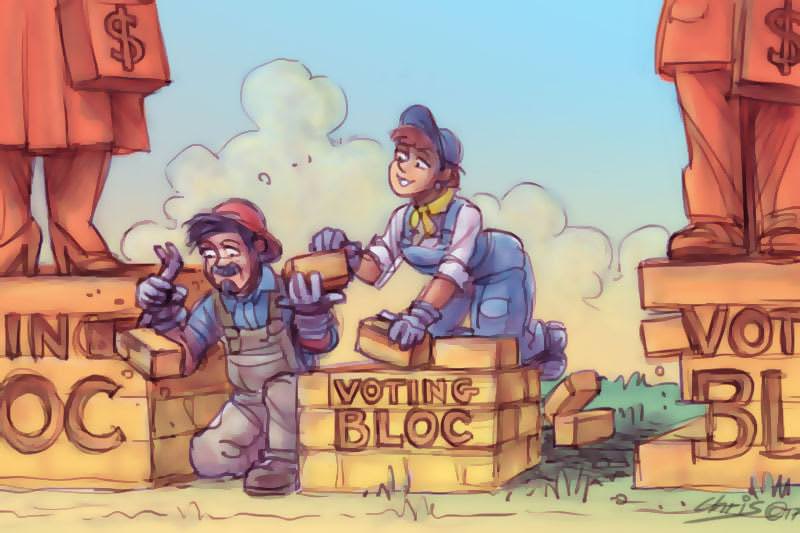
AUSTRALIA
- Ann Deslandes
- 26 May 2017
4 Comments
Wealth inequality in Australia is flourishing. The top one per cent of household wealth in Australia is moving toward being 20 per cent of total wealth, and the country is a preferred destination for millionaires. With a government that prefers to impoverish and vilify the disadvantaged and spend big on coal mines, this does not look likely to shift. But there are always other paths to social justice, and in Australia one may be through the millionaires - or at least the companies on which their fortunes are built.
READ MORE 
-

AUSTRALIA
- Kate Galloway
- 13 April 2017
8 Comments
There are reasons to be concerned about the capacity of a government to govern in the current brief election cycle, and in dealing with what some describe as a 'hostile senate'. But the networked world we inhabit also calls into question the way in which politicians might be accountable to the public. Rather than focusing on changes to a system of governance derived from a different era, we should be asking what are the implications of emergent technologies on the way in which we are governed.
READ MORE 
-
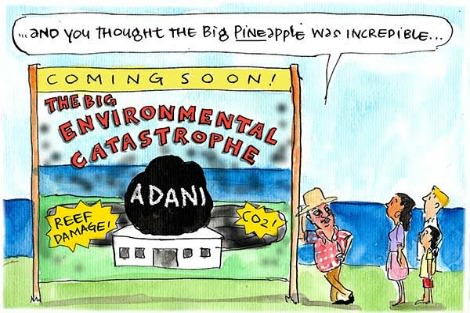
CARTOON
- Fiona Katauskas
- 11 April 2017
This week's offering from Eureka Street's award winning political cartoonist.
READ MORE 
-
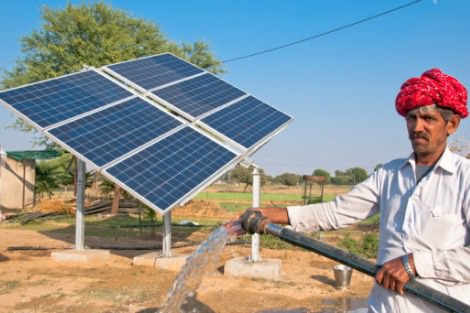
ENVIRONMENT
- Ketan Joshi
- 06 April 2017
1 Comment
A 2015 cartoon by Bill Leak depicts an Indian family squatting, smashing solar panels to pieces. A woman chews on a shattered piece of glass, and a man attempts to smear mango chutney onto glistening shards. The initial reaction centred around the racist depictions of Indians. But it also represents a broader and worrisome attitude towards global energy politics, that assumes idiocy in developing countries, combined with a push to burden them with the dangerous wares of a dying industry.
READ MORE 
-

ARTS AND CULTURE
- Tim Kroenert
- 15 March 2017
1 Comment
The power of Jones' film comes from bringing us the faces and voices of the victims in the present day; to hear in their words and see in their manner the ongoing trauma of those experiences. It is a timely and illuminating exploration of the impacts of child abuse, arriving during a period when many of our Australian institutions, religious and otherwise, have been facing the probing spotlight of a royal commission for behaviour that was at times equally as secretive, and traumatic.
READ MORE 
-
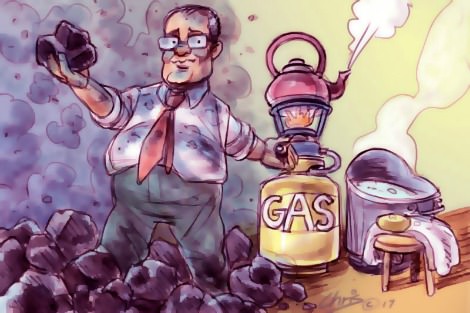
ENVIRONMENT
- Greg Foyster
- 23 February 2017
10 Comments
Australia's most politically contentious rock is back in the limelight after Prime Minister Turnbull spruiked 'clean coal' power stations in early February, and Scott Morrison brought a lump of the stuff to parliament. It was a juvenile act, but an effective one: here we are again, still talking about coal weeks later, when the real energy policy battle is over gas. But that's how it goes - a pitch for a new coal-fired power station in Australia is actually a clever exercise in repositioning gas as a greener fuel.
READ MORE 
-

AUSTRALIA
- Fatima Measham
- 16 February 2017
9 Comments
There's not enough jobs because foreigners are stealing them. Wages aren't going up because foreigners drag them down. Graduates aren't finding positions because skilled worker visas are being given out too easily. Such answers are potent in pockets of Australian society that would rather blame outsiders than demand their government create new jobs, lift the minimum wage, improve work conditions and training, and mediate skills transfers from industries that are contracting, such as mining.
READ MORE 
-
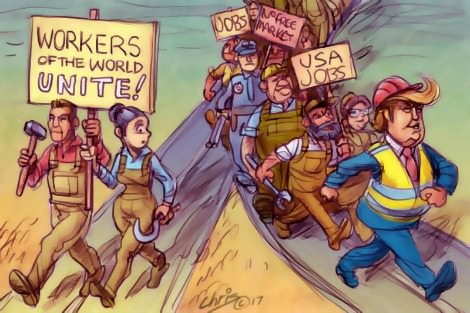
INTERNATIONAL
- Colin Long
- 10 February 2017
15 Comments
Much commentary on Trump's victory has veered between two explanations: either there is large proportion of the electorate with 'deplorable' attitudes to women and minorities; or economic dislocation has produced an angry white working class eager to punish political elites. These explanations are not mutually exclusive. The willingness to ignore or welcome Trump's misogyny is a symptom of the undermining of a deep sense of masculinity that, for some men, is their primary identity.
READ MORE 